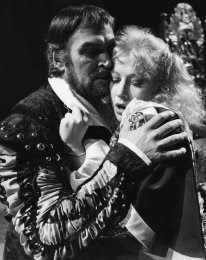
Thomas Middleton was a Renaissance playwright successful enough in his own lifetime, then cast like so many of his contemporaries under the critical shadow of Shakespeare, but now enjoying increasingly greater prominence in academic discussion; admittedly this is in part thanks to what we now recognise as his revision of a number of Shakespeare plays, but moreover due to recent work by OUP in collecting his complete works for the first time that has allowed us to truly grasp the full range of his dramatic power. Thanks to this, we can now get a better sense of his professional progress, and assess his position at the age of 40.
Born in 1580, Middleton would have thus turned 40 in 1620. Biographically, Middleton, son of the bricklayer William Middleton (who by the time of his son’s birth was a prosperous gentleman), educated at Oxford, was now an established playwright on the London stage with the bulk of his plays behind him (including The Roaring Girl, The Yorkshire Tragedy, The Revenger’s Tragedy and A Chaste Maid in Cheapside). He and his wife Mary had been married nearly twenty years, and their one child, Edward, was 17.

In terms of his work, Middleton was shortly to create his two great tragedies that would ensure his reputation lasted – Women Beware Women (circa 1621) and The Changeling (1622), the latter being written in collaboration with William Rowley. Middleton, like most playwrights of the age, frequently collaborated – another work produced around his 40s was Anything for a Quiet Life with John Webster. In addition to his work for the public stage, Middleton also had responsibility as the City Chronologer, a post he was appointed to in 1620 and which involved him with a number of pageants in London. In 1621 the inauguration of a new mayor, Edward Barkham, was cause for Middleton to write the pageant piece The Sun in Aries as part of the extravagant celebrations. His work for the City was varied, and the role of Chronologer prestigious, but sadly like so many masques and pageants, whilst it would have been popular in its time, today such works conflict with our expectations of drama and is thus (at present) primarily an interesting text for academics, and less likely to be revived in a popular context; whereas Anything for a Quiet Life¸ produced in the same year, shows Middleton returning to the genre of city comedy, contrasting the civic pride of the pageant with an equally topical, but more pointed commentary on contemporary London. Also in this year he is believed to have edited Shakespeare’s Measure for Measure, a practice he had previously done with Macbeth and Timon of Athens, in which earlier plays were expanded on or rejigged for new performances – the difficulty for modern scholars being that Middleton’s edited texts are the only versions of these plays to survive, so that we can never truly be sure where Shakespeare ends and Middleton begins.
As said, the 40 year old Middleton had written the majority of his plays, with some of his greatest hits yet to come. But his career in writing drama as we understand it was due to end soon after, in 1623, when A Game at Chess – a highly controversial satire on the young Charles I’s ill-fated and unpopular attempt to woo the Spanish Infanta – was removed from the stage and, as many believe, Middleton severely chastised and possibly banned from the stage. At any rate, despite living until 1627, he wrote no more plays for the stage, with his dramatic output of those final four years being (either willingly or by decree of the Master of the Revels) more mayoral shows.
Middleton at Buckingham: Middleton’s great tragedy The Changeling is a set text on the Renaissance Literature Module at Buckingham, and he also features as a key playwright in the preliminary module Plays in Performance.
Hi, loving the posts. Do you have a logo or something?
LikeLike
Thank you – we shall work on a logo!
LikeLike